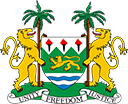Internal Control and Compliance Department
- You are here: Home
- About
- Administration of Parliament
- Internal Control and Compliance
INTRODUCTION
The Internal Control and Compliance De[partment in the Parliamentary Service Commission (PSC) was created pursuant to Section 19(1) of the Parliamentary Service Commission Act of 2007.
The Internal Control and Compliance Department can be an important part of the internal control framework and help the commission accomplish its objectives by bringing a systematic, disciplined approach to evaluating and improving the effectiveness of risk management, internal controls and governance processes.
In the Parliamentary Service Commission, the internal audit function provides the Chairman of the Parliamentary Service Commission, the Clerk of Parliament, the Audit Committee and the Directorate of Internal Audit at MoFED with assurance that key risks to the achievement of the Commission’s objectives are being appropriately addressed. Although internal audit is part of the management, its reporting structures should be operationally independent from line management. To achieve this, internal audit typically has a dual reporting structure, it reports on its plans and activities to the audit committee, and reports administratively to the Clerk of Parliament. The head of internal audit is the most senior officer responsible for the internal audit function.
Vision
A world class Internal Audit function committed to professional excellence.
Mission
To provide an objective appraisal of systems, improve the effectiveness of risk management and assist the management in establishing and maintaining policies and procedures that adequately protect the assets of the Commission.
Mandate
Section 75 of the Public Financial Management Act of 2016 mandated the Internal Control and Compliance Department to provide independent, objective assurance and, consulting services designed to add value and improve the Parliamentary Service’s system operations, control and governance processes as a service to the commission to assist it accomplish its objectives.
Functions of the Internal Control and Compliance Department
- ensure strict adherence to all control procedures introduced to safeguard the assets and records of the agency or entity;
- monitor the execution of the budget by the agency or entity and report promptly on any irregularity;
- make periodic reports on audits completed;
- review implementation of the Auditor-General’s or other extern al auditor’s recommendations;
- in case of an internal audit department, division, or unit of a budgetary agency,
- review external audit reports and management letters on entities included in the general government or public enterprises in respect of which the head of the budgetary agency is the responsible authority;
- review all contracts of the agency or entity for ensuring effective performance and value for money;
- continuously review effectiveness and efficiency of internal control systems and procedures of the agency or entity
PRINCIPLES OF THE INTERNAL CONTROL AND COMPLIANCE DEPARTMENT
You can expect Internal Audit to apply and uphold the following six core principles:
- Customer Service
- Confidentiality
- Integrity
- Collaboration
- Objectivity
- Competency
Services offered to MPs and Staff
The Internal Audit Unit has allotted time available for MPs and staff members upon requests for guidance and training on internal control improvements, risk identification, risk management, and fraud prevention.
8. Names of Staff, Designation, Phone number, official email
| No. | Name | Designation | Tel | |
|---|---|---|---|---|
| 1. | Mr. Augustine Kamara | Director | ||
| 2. | Mr. Mohamed Kolleh Mansaray | Deputy Director |
subscribe to ourNEWSLETTER
Sign up for newsletter to get the latest news, announcements and event information.

